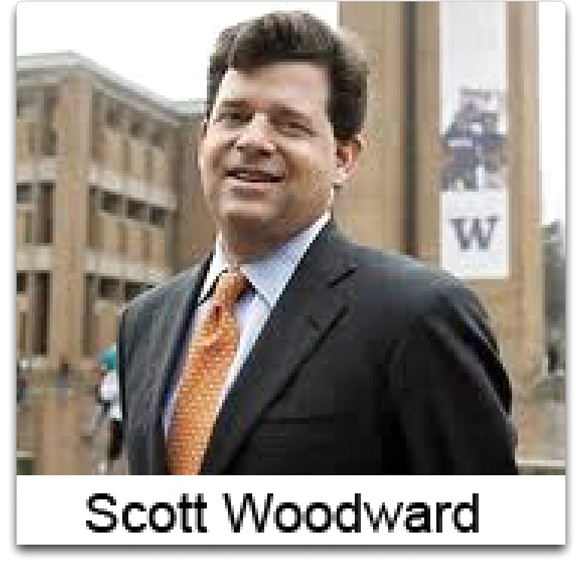Louisiana Lightning
 Our new favorite administrator here at the blog is University of Washington Athletic Director Scott Woodward. Mr. Woodward, a Bayou State native who followed Mark Emmert from LSU to UW, created quite a brouhaha last week when he stated the obvious, saying that the University of Oregon’s Nike-funded athletic program is first-rate while its state-funded academic program has become an embarrassment. Woodward’s statement.
Our new favorite administrator here at the blog is University of Washington Athletic Director Scott Woodward. Mr. Woodward, a Bayou State native who followed Mark Emmert from LSU to UW, created quite a brouhaha last week when he stated the obvious, saying that the University of Oregon’s Nike-funded athletic program is first-rate while its state-funded academic program has become an embarrassment. Woodward’s statement.
People lined up to chastise Mr. Woodward for embarrassing UW and demeaning UO and Oregon generally. He quickly issued a standard apology/clarification. That proved to be not enough for Interim UW President and Nike employee Phyllis Wise, who, like the parent who takes their kid back to the 7-11 to stare at the ground and apologize for stealing and give back the gum, insisted that Mr. Woodward had insulted the faculty at Oregon, so he should call the UO President and Athletic Director and apologize in person. Link to PDF of Wise letter.
We won’t pause here to quibble with Interim President Wise’s notion that an apology to the faculty should be delivered to two administrators (instead of, say, the president of the Faculty Senate) because, in all the reporting about Woodwardgate, no Oregon faculty member has wanted, needed, or demanded an apology. As the people on the ground who have had to deal with the massive state budget cuts, they no doubt understood the banal truth of Mr. Woodward’s remarks.
What Scott Woodward said is true not only for the University it of Oregon, but for pretty much every public university in the country. It is certainly true for all the public universities in Washington. At the risk of having Phyllis Wise call the blog’s president and athletic director to demand an apology, we’ll say unequivocally right here and now that the University of Washington’s academic programs aren’t as good as they were three years ago. Do the math: with over 30% cuts to state appropriations and an increased number of students, how could they be? To say that academic programs have declined is not demeaning to the outstanding faculty in Washington’s public universities. It is simply recognizing that when you try to educate more students with fewer resources, what has to give is the quality of the education.
Political and public relations pressures force governors and university presidents and legislators to try to deny the obvious and pretend that the burning house is just as good as it was before it was on fire. The danger in that is that, because we keep saying everything’s really O.K., no one pays enough attention and the house burns to the ground.
Scott Woodward’s run in the sports pages probably brought more attention to the funding crisis in public universities than all of our academic blogs and statements and conferences put together. After he’s through apologizing, we should all say thanks to him.